Pros and Cons of Keto, Whole30 + Intermittent Fasting

Are you thinking about trying a new diet? Quick fixes that jolt our systems are tempting to turn to, but we encourage lasting lifestyle changes. While fad diets may be tempting, there are both pros and cons to Keto, Whole30, and Intermittent Fasting.
No diet is worth doing if you can’t do it for the rest of your life.
We asked our nutritionist Jenn Keirstead to weigh in on a couple of popular diet fads. She details how restrictive programs can lead to yo-yo dieting – rapid weight loss followed by a rebound that sees you gaining everything, and sometimes even more, back – and why you should invest in a sustainable long-term nutrition plan.
Pros and Cons of the Keto Diet
The Ketogenic diet is a high-fat, adequate-protein, low-carbohydrate diet that in medicine is used primarily to treat epilepsy in children. The diet forces the body to burn fat rather than carbohydrates.
At its core, this is an extreme version of the low-carb diet. When you deprive your body of all carbohydrates, your body must use ketones as fuel. To put your body in a state of ketosis, around 80% of your diet must come from fat.
Pros of Keto
Promotes healthy fats
In the 90s, fat got a bad rap, but it’s crucial to our bodies. Fats, (animal-sourced or otherwise) can offer an excellent variety of fat, protein, and vitamins. However, it’s extremely important to source the highest quality. Look for certified organic, grass-fed/pasture-raised, or visit your local Farmers’ Market and talk to people responsible for raising your food.
Besides promoting a diet ample in healthy fats, there’s not much else that is terribly healthy or sustainable about this highly restrictive eating style.
Cons of Keto
Cuts out key nutrients
The Ketogenic diet is one of the most restrictive diets on the market. Your diet is limited to 15-20 grams of carbohydrates/day — the equivalent of a small handful of baby carrots. This leaves out most fruits and vegetables, which can deliver crucial nutrients.
Unsustainable
This biggest issue with this diet is what will happen once the person adds carbohydrates back into their diets. Hint: you might gain some of that weight back.
Pros and Cons of the Whole30 Diet
Whole30 is a 30-day fad diet that emphasizes whole foods and during which participants eliminate sugar, alcohol, grains, legumes, soy, and dairy from their diets. Whole30 is similar to but more restrictive than the paleo diet, as adherents may not eat natural sweeteners like honey or maple syrup.
Whole30 has gained popularity due to its “challenge program” style, which is designed to restart your body and change how you think about food. This diet is described as a whole foods approach to eating, and I’m certainly an advocate of eating real food.
Pros of Whole30
Introduces a variety of whole foods
The advantage of experimenting with a diet such as this is that you’re introduced to many new, healthful foods. Whole food types of diets tend to involve more time spent in the kitchen. Cooking from home can be a wonderful way to gain more control over the quality of your food, which of course, is a fantastic advantage to your health.
Cons of Whole30
Cuts out food groups we love
The challenge is not just to eliminate processed and packaged foods from your life for 30 days — You are also instructed to avoid beans/legumes, starchy vegetables, dairy, grains, sugar (including natural sweeteners), and alcohol. From our vantage point, moderate amounts of beans, legumes, dairy, and grains are good for your body. Unless you plan on never eating them again, you risk putting the weight right back on once you reintroduce them.
Too restrictive
One of the common cautions you’ll hear related to Whole30 is how restrictive it is. It’s a diet based on highly rigid rules and “slip-ups” are unfortunately unacceptable. If you “slip” you start over. The rules may make it feel impossible to be successful on a diet like this, and like many challenges or diets, that can be detrimental to one’s self-esteem. Restrictive behaviors with food may also trigger disordered eating in susceptible individuals.
Pros and Cons of Intermittent Fasting
Intermittent fasting, or intermittent calorie restriction, is an umbrella term for various diets that cycle between a period of fasting and non-fasting during a defined period.
Intermittent fasting includes everything from periodic multi-day fasts to skipping a meal or two on certain days of the week. The theory is that this type of diet will help decrease appetite by slowing the body’s metabolism.
Pros of Intermittent Fasting
The body should take some breaks between eating
Fasting can be beneficial, and we believe it’s best done in the evening, continuing on throughout the night while you’re sleeping. An earlier dinner allows for 3-4 hours before bed without food, which helps support proper digestion and — as an added bonus —potentially a much deeper sleep.
You’ll feel hungry when you wake
Another benefit is you will feel hungry when you wake and therefore be encouraged to eat during the earlier part of the day when you’re more likely to burn the calories off. Studies also show that our hormones, enzymes, and digestive systems are biologically best prepared for food intake in the morning and early afternoon.
Cons of Intermittent Fasting
Can cause overeating
There’s a strong biological push to overeat following fasting periods. Your appetite hormones and the hunger center in your brain go into overdrive when you are deprived of food.
Unbalances blood sugar levels
Restricting calories during the day can lead to unbalanced blood sugar levels, which not only promotes low energy levels but the desire to overeat at the end of the day when the body is gearing down for sleep. The idea of “rest, not digest” is a concept that assists in the digestion of your food hours before bedtime, so that your body can fall into a deep sleep on an empty stomach. This also promotes hunger in the early morning, when your body needs the calories the most.
In a nutshell, fads deliver quick results – they don’t provide long-term solutions. Rapid health resets can be beneficial, but know what you’re getting into. Find a wellness approach you can commit to, if not for life, for the foreseeable future. Learn more about our approach to balanced nutrition.
What is Mountain Trek?
Mountain Trek is the health reset you’ve been looking for. Our award-winning health retreat, immersed in the lush nature of British Columbia and featuring daily sunrise yoga and night-time restorative yoga, will help you unplug, recharge, and roll back years of stress, anxiety, and unhealthy habits. To learn more about the retreat, and how we can help you reset your health, please email us at info@mountaintrek.com or reach out below:



